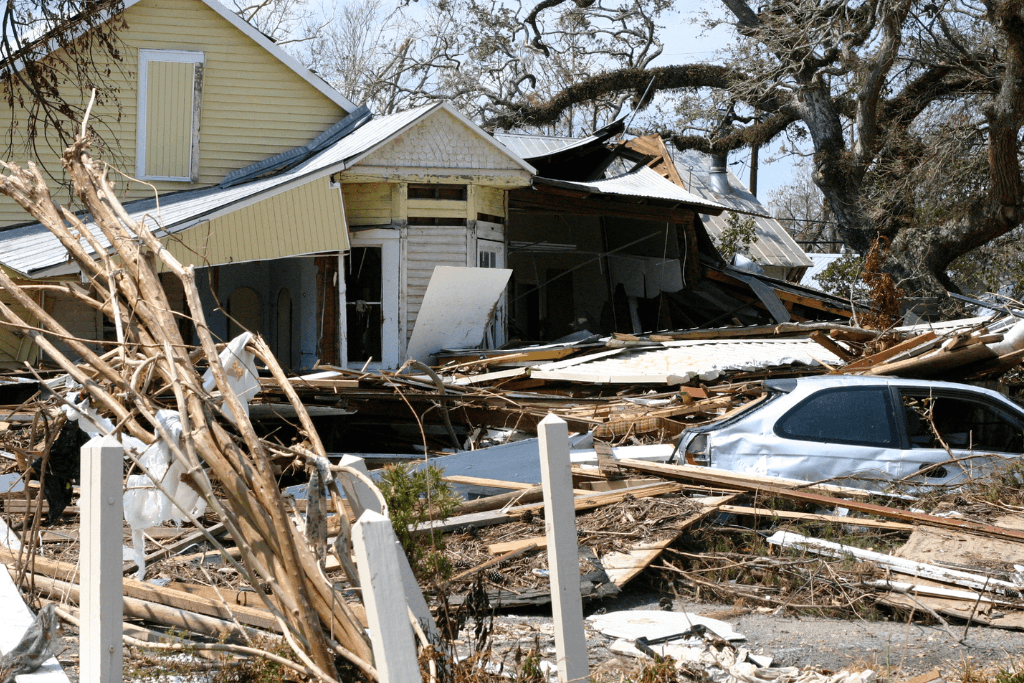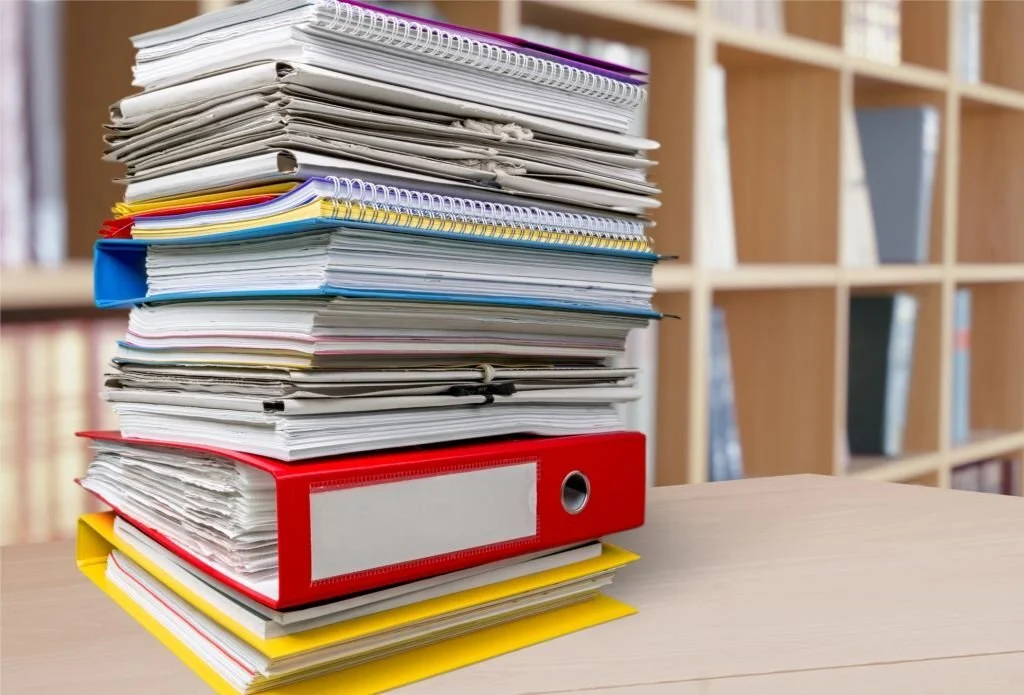
Key Takeaways
Preparation should begin well before hurricane season starts, because it's hard to get everything in place when you're being threatened by a big storm.
Important documents to protect include insurance documents, finance documents, medical documents, Social Security numbers, birth certificates, pet records, diplomas, passports, tax returns, and estate planning documents like wills or trusts.
Scanning documents is easy using smartphone apps and built-in scanner functions, with digital platforms like Trustworthy providing advanced storage capabilities and state-of-the-art security including 256-bit AES encryption, biometric authentication, tokenization, and multi-factor authentication.
Physical copies should be protected using waterproof and fireproof safes with ETL (Electrical Testing Laboratories) verification and UL (Underwriters Laboratories) certification, stored in elevated, interior locations during hurricane threats.
Trustworthy's Family Operating System® protects documents from both physical dangers of hurricanes and online threats while ensuring accessibility regardless of location, making disaster recovery and rebuilding processes smoother.

When preparing for hurricane season, the first thing most people do is secure their property — but what about your important documents?
Failing to safeguard your important documents can result in loss and damage and even put personal data at risk for cyberattacks. We’ll outline simple strategies for protecting your important documents from hurricanes and other natural disasters.
Identifying the Right Documents to Protect
Q: What documents should I protect during a hurricane?
A: When you’re in the midst of a hurricane, the last thing you’re probably thinking of is where your important documents are. That’s why you should have a prepared document protection plan put in place.

John Moore, a meteorologist for the National Weather Service, says: “You want to know what you're going to do well before the season starts because it's going to be hard to get everything in place if you're threatened by a storm or a storm forms and you don't have a week to prepare.”
Important documents that you need to protect include:
Finance documents
Medical documents
Documents that contain your Social Security number
Birth certificates
Pet records
Diplomas or military certificates
Passports
Tax returns and other documents
Estate planning documents like wills or trust information
Creating and Storing Digital Backups
Q: How can I scan my important documents for digital storage?
A: Your biggest asset when protecting your important documents is digital storage, so you can access your documents regardless of where you are.
Start by scanning your important documents, which has never been easier, thanks to our smartphones. Nowadays, there are apps and built-in scanner functions on our phones.
Q: Where should I store digital copies of my documents?
A: When it comes to digital platforms, Trustworthy should be your first choice. The Trustworthy Family Operating System® has advanced digital storage capabilities that make storing your important documents during hurricane season simple.
Trustworthy's digital vault protects your documents from the physical dangers of hurricanes and dangers that lurk in the online world, thanks to state-of-the-art security features like 256-bit AES encryption, biometric authentication, tokenization, and multi-factor authentication.

Protecting Physical Copies
Q: Why should I protect original documents during a hurricane?
A: While keeping digital copies of your important documents is a good idea to protect them from physical damage, some original documents are difficult to replace.
If you’re rebuilding your life after the devastating effects of a hurricane, the process of obtaining replacements can be time-consuming and stressful.
Q: What kind of safe should I use to store physical documents?
A: You can protect your documents by using waterproof and fireproof storage solutions like a waterproof safe. Look for:
ETL (Electrical Testing Laboratories) verification for water resistance
A UL (Underwriter Laboratories) fireproof rating that can withstand temperatures ranging from 1,150°F to 1,850°F
Construction materials designed to handle falling objects or structural collapse
Q: Where should I place my document safe in my home?
A: Regardless of what type of safe you use, store it in an elevated, secure location, as hurricanes can bring dangerous storm surges that reach 30 feet or more.
Also, back up copies of your documents digitally with Trustworthy so that even if your safe is damaged, your information is still secure and accessible.

Q: Is a fireproof safe also waterproof, and will it protect my documents during a flood?
A: Fireproof safes are designed to withstand heat and can resist water from fire suppression systems.
However, whether your safe will protect your documents during a flood depends on whether it has ETL verification for water resistance. Not all fireproof safes are waterproof, so be sure to check the specifications.
Using a Safe Deposit Box
Q: What kinds of documents should I keep in a safe deposit box?
A: A safe deposit box at your local bank or credit union provides additional protection by keeping your documents offsite, if you want to retain paper copies. Items you could store there include:
Investment records
Financial records
Estate planning documents
Property deeds
Insurance documents
Q: How much does it cost to rent a safe deposit box?
A: The cost to rent a safe deposit box ranges from $15 to $300 per year, depending on the size and location.
Q: Should I still back up safe deposit box documents digitally?
A: Yes. Even when storing documents in a safe deposit box, you should keep digital copies with Trustworthy. The platform includes helpful features like:
Document analysis
Auto filing
Document summaries
Filing recommendations
These tools make organizing and locating your important records simple and stress-free. Trustworthy gives you 24/7 access to your documents — unlike a financial institution, where access is limited to business hours.

Preparing a Portable Emergency Kit
Q: What type of container should I use for an emergency kit?
A: Your portable emergency kit should be a backpack or storage tub that’s easy enough to carry during an evacuation. The container should be durable and ideally waterproof.
Some people even place their backpack inside a plastic container for added protection.
Q: What supplies and documents should go in an emergency kit?
A: Your emergency kit should include basic supplies, such as:
Bottled water
Nonperishable food
First-aid supplies
Flashlights
Medication
Cash
See our disaster planning guide for a full list:

Q: How should I protect paper documents from water or fire?
A: Store your documents in waterproof file folders or binders. In a pinch, plastic zip-lock bags can provide basic protection. Place the kit somewhere accessible and secure during the storm.
Sharing and Organizing Backup Copies
Q: Why is it important to share copies of key documents?
A: If you become incapacitated or are unable to access your documents, trusted family members or legal representatives may need them. Sharing them with others can prevent delays and complications during a crisis.
Documents you should share include:
Medical records
Driver’s license and other identification documents
Insurance policies
Estate planning documents like wills and advance directives
Q: How does Trustworthy help with document sharing?
A: Trustworthy’s collaboration features make sharing secure and customizable. You can:
Set up a trusted network of family members and advisors
Assign roles with custom access levels
Enable temporary, emergency-only access when needed
This allows you to maintain control while ensuring others can act on your behalf if necessary.
Q: Should I create an inventory of my documents?
A: Yes. Create an inventory list that notes what documents you have and where they’re stored — whether in your home safe, a bank, or online.
Store this inventory with Trustworthy so it’s easy to update and share with others.

Maintaining Your Protection Plan
Q: How often should I review and update my document protection plan?
A: You should review your plan annually, ideally before hurricane season begins. Here’s what to do:
Review all documents and storage solutions
Update expired or outdated items (e.g., insurance policies, medical records)
Confirm that digital backups are current and that your trusted network has access
This is your opportunity to make last-minute adjustments to your documents or your protection strategy.
Q: How do you preserve wet documents after a hurricane?
A: If your documents get wet, freeze them as soon as possible. Freezing halts further damage and gives you time to properly dry or professionally restore them later. Avoid trying to separate soaked papers immediately, as this can cause further tearing or ink smudging.
By combining digital security, physical safeguards, and routine maintenance, you can make sure your important documents survive whatever hurricane season throws your way.
Platforms like Trustworthy offer a reliable, secure way to keep your family’s information safe — no matter where you are. You can try Trustworthy for free, for as long as you like.
We’d love to hear from you! Feel free to email us with any questions, comments, or suggestions for future article topics.














